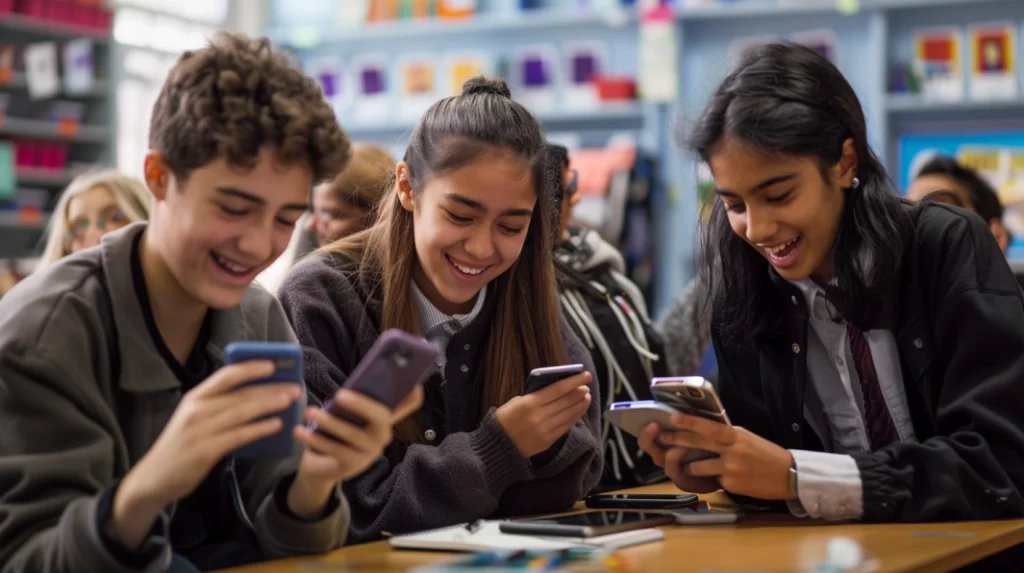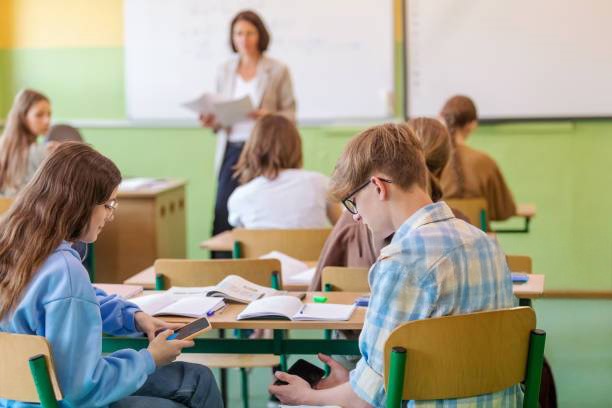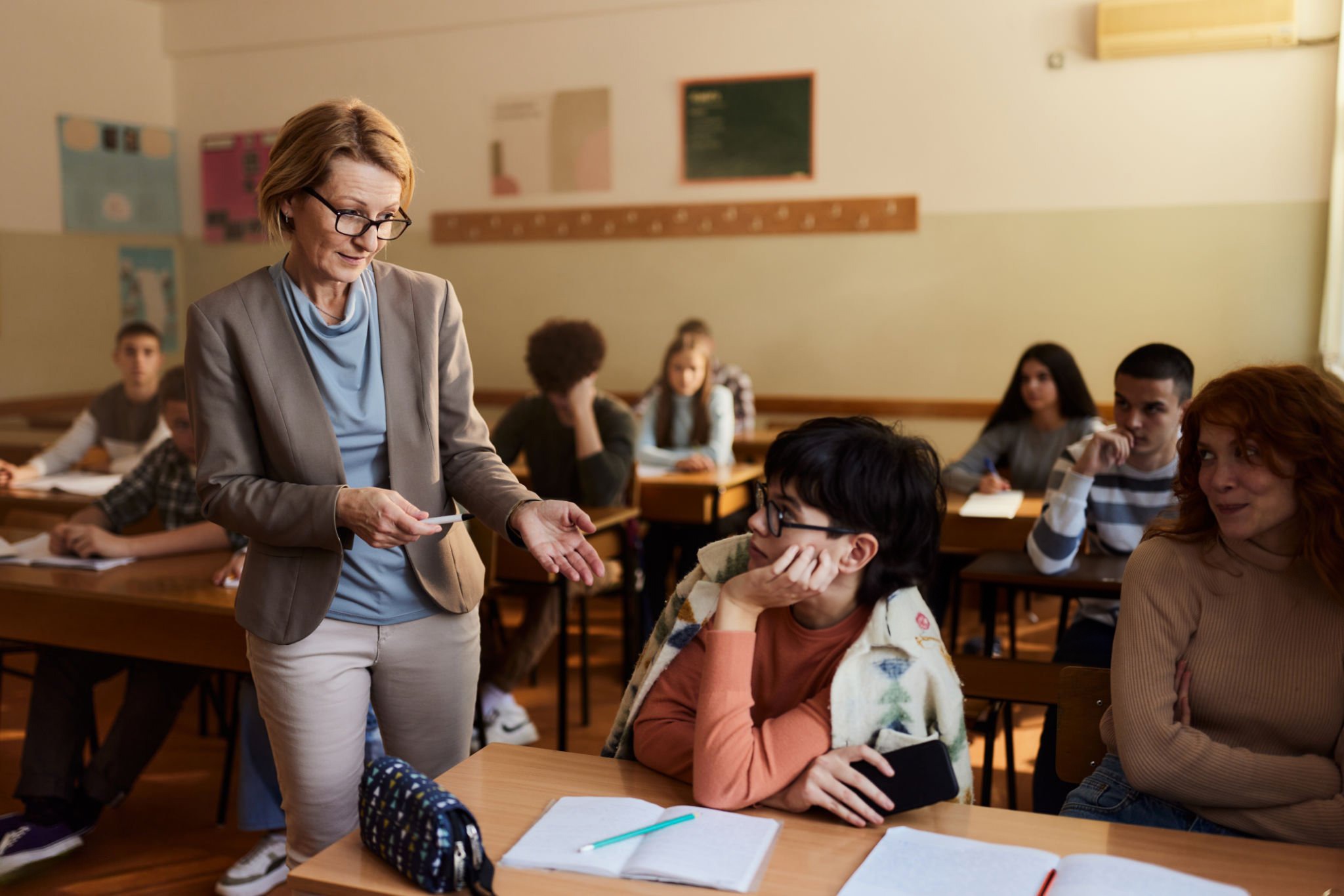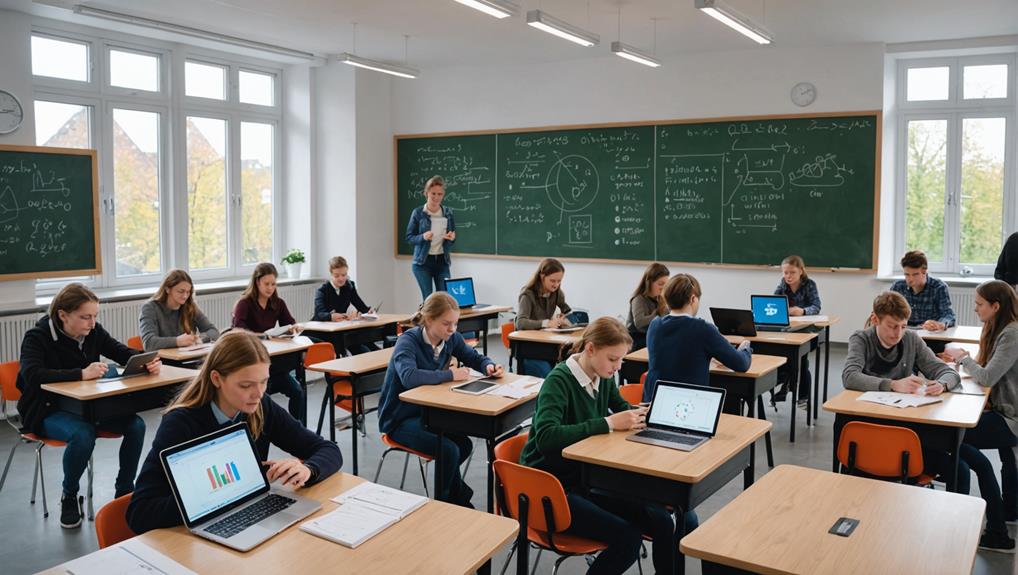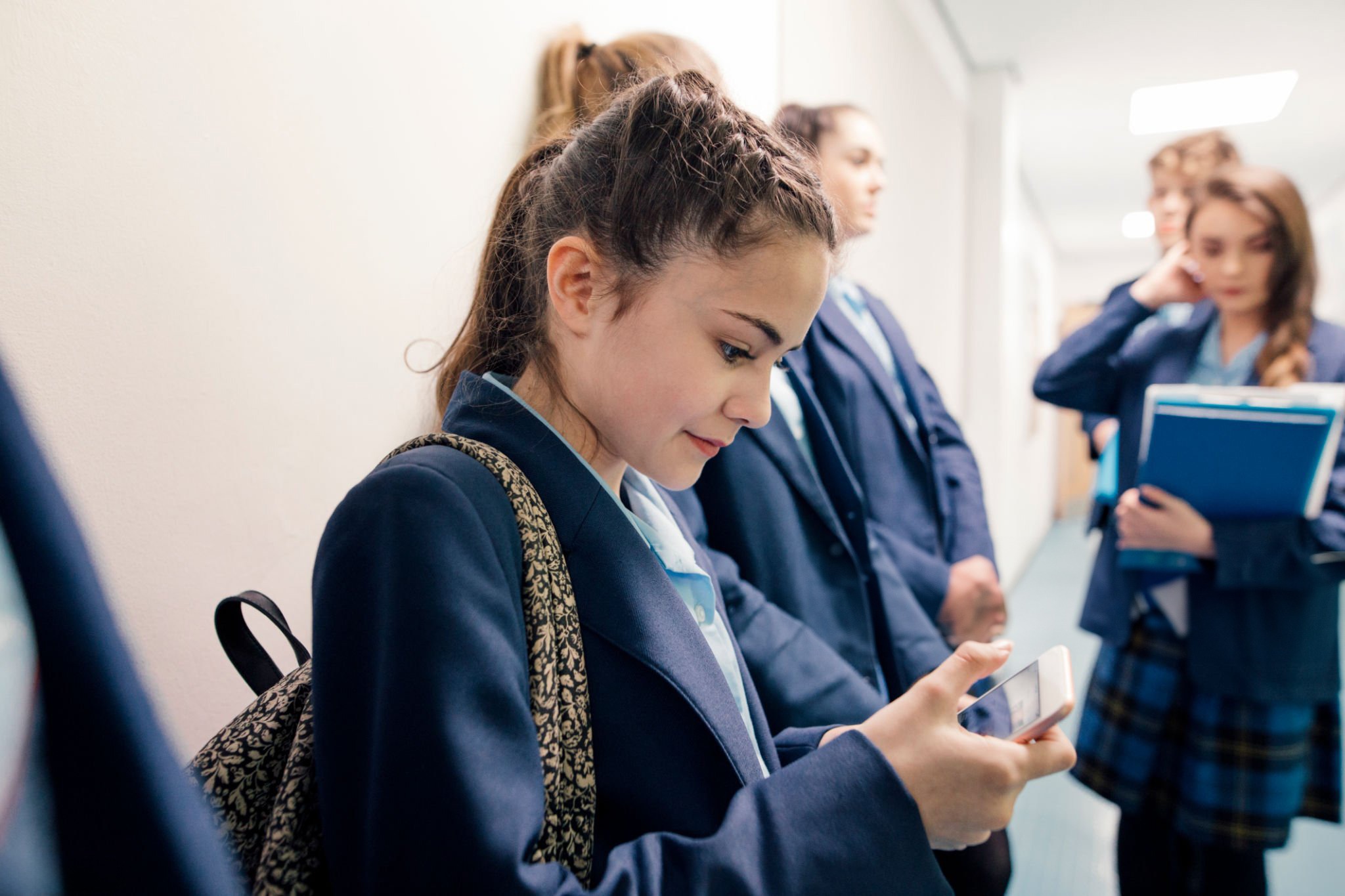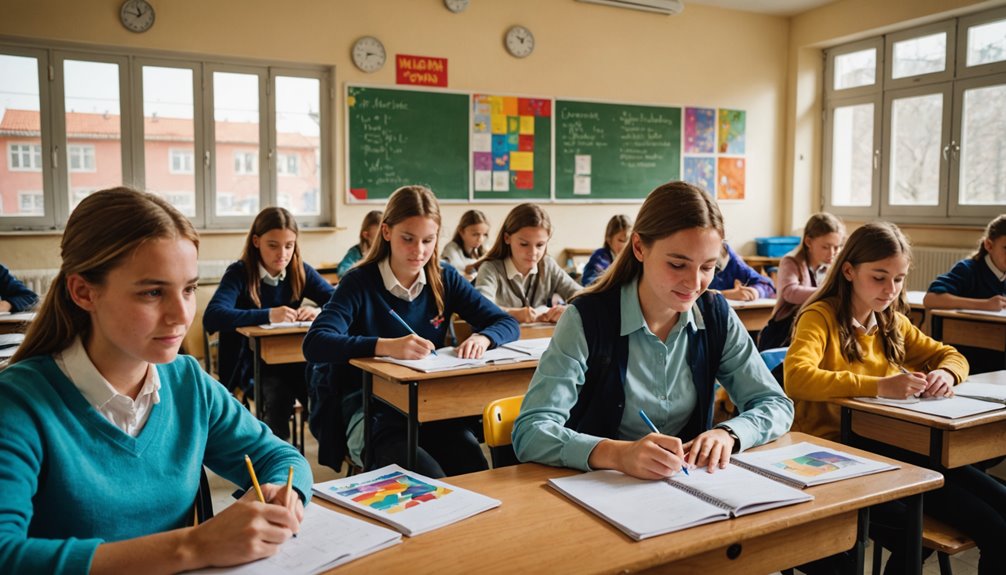Mobile Phone Use in UK Schools
Since its introduction in 2024, guidance prohibiting mobile phones in UK schools has sparked a significant debate among educators, parents, and politicians.
While the primary objective is to enhance student engagement and academic focus, the complexity of enforcing a ban presents notable challenges, particularly as some schools are introducing technology into the classroom, whilst simultaneously also wanting to create a distraction-free environment.
The intentions of the phone bans have a deeper impact than singularly enhancing academic performance; they further aim to improve social interactions and address issues like cyberbullying and inappropriate phone use – something that 29% of secondary school admitted to in a UNESCO study.
Widely recognised establishments such as Eton College and Shiplake college have already employed phone bans on their premises, leading to Trusts such as Ormiston Academies to follow suit, confirming to the BBC that it was operating a no smartphone approach across Its 57 institutions nationwide. Reflecting on the ban, a spokesperson acknowledged that it has been “really successful” and “popular” with parents and students.
But it’s not just schools that are implementing these bans, venues such as Manchester based ‘Amber Club’ have prohibited usage on their premises and even locations like Gyms are beginning to toy with the idea of an outright phone ban.
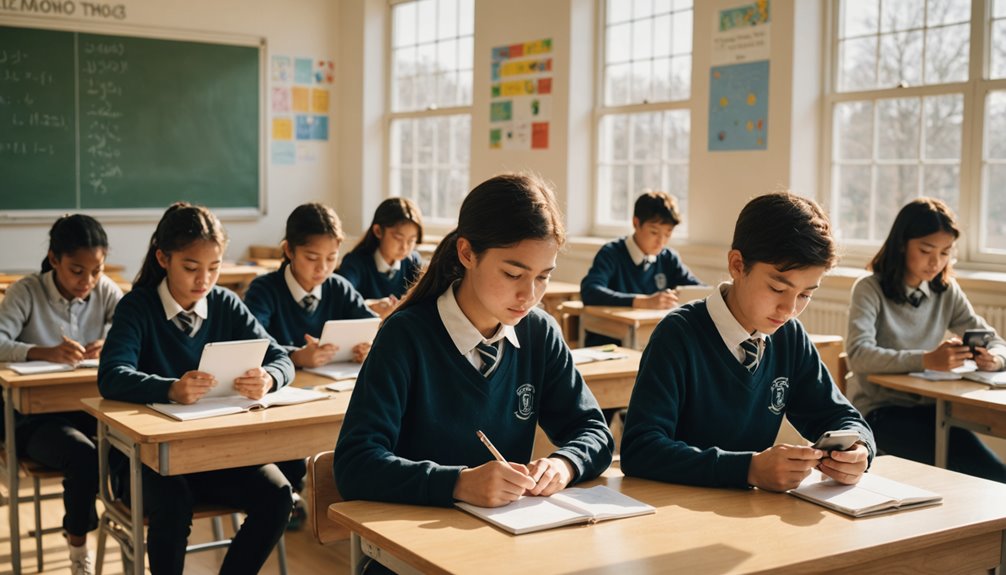
New UK Guidance on Mobile Phones in Schools
The Department for Education’s new guidance provides extensive support for headteachers in prohibiting smartphone usage, but further legislation is set to be reviewed in parliament as of March 2025. This review looks at providing increased support to schools and future defining restrictions on Social Media platforms, ensuring they create stronger measures safeguarding the distribution of content and children’s access to it, potentially mirroring Australia’s move toward social media safety amongst young people.
Currently the UK’s guidance suggests various strategies for banning phones such as completely restricting their presence on school premises, securing them in lockers and adopting Lockable Phone Pouches.
Learn more about Phone Locker Pouches
Data has shown that these measures can increase student engagement and productivity while reducing the mental health effects associated with constant connectivity. This is explored in depth by ‘Swiped: The school that banned smartphones’ a new documentary by Channel 4 that follows Stanway School and the University of York in an experiment measuring the impact on students after giving up their phones for three weeks. The study produced some remarkable findings:
- A 17% decrease in symptoms linked to depression
- An 18% decrease in anxiety
- A 3% boost in working memory
This continuation of substantial evidence highlights the potentially detrimental effect of phone usage in educational outcomes. A report by The Policy Exchange demonstrated that secondary schools with a ban in place were more than twice as likely to be rated outstanding by Ofsted compared to the national average. While it’s suggested only 11% of secondary schools have an effective ban in place, there is a clear correlation between smartphone bans and improved school performance.
This aligns with international findings, observed particularly across Europe in countries like France, Italy and Germany that have reported positive outcomes from similar bans.

From Policy to Practice
Though many schools are still to implement a ban, Eton College, one of Britain’s most prestigious boarding schools are front runners in this policy and expect it to assist in reducing distractions and improve their already high standard of academic performance.
Similarly, Shiplake College enforce strict regulations which have led to noticeable behavioural changes and increased student engagement. Gregg Davies, Headmaster at Shiplake observed that the bans helped students regain their ability to communicate face-to-face, a critical skill often diminished by excessive smartphone use.
Meanwhile, Helena Dollimore, MP for Hastings and Rye raised the issue of smartphone bans in parliament and stated that while parents are in support of limited phone use in school there were concerns about students’ safety on their journeys to and from home.
These concerns of parents highlight the multitude of challenges that schools may face in implementing a ban. Of course, these bans aren’t a fix all solution and better regulation of online platforms alongside mental health support for young people is necessary to coincide with these initiatives.
However, there are solutions to these objections, by using Lockable Phone Pouches allows students to retain possession of their device and regain access to it and the end of the school day.
While behavioural advisor for the Department for Education, Tom Bennett said the “smartest thing” a school could do was ban smartphones, which he described as “attention hoovers”, implementing the pouches with a school wide ban prevents any outliers or students feeling ostracised as the lockable pouches mitigate many issues that arise by entirely prohibiting phones on the premises.
This reveals the intricacies of navigating a relatively unexplored technological landscape that is continually evolving. While not every measure taken will be perfect by continually engaging parents in dialogue and aligning their expectations with school policies, we can adapt restrictions as necessary and learn how is best to appropriately tackle this epidemic.
Although implementation can be daunting and presents its own challenges, Phone Locker® can offer experienced guidance through this process and support you in this change. If you’re interest in creating a phone-free environment, contact us to find out more or get a no-obligation quotation today!

Frequently Asked Questions (FAQs)
How Do Mobile Phones Affect Student Mental Health?
Mobile phones can negatively impact student mental health and be a catalyst for increased anxiety and depression. Excessive screen time has shown to drastically disrupt sleep, while cyberbullying and peer pressure can exacerbate addiction, distraction, and hinder both academic performance and social interactions.
Are There Any Alternatives to Banning Mobile Phones in Schools?
Alternatives to banning mobile phones in schools include increasing parental involvement, enhancing digital literacy programs, implementing robust behaviour management strategies, and promoting student autonomy. These approaches aim to balance technology use with educational and developmental benefits, however allowing phone usage to some extent may create its own offset of issues regarding the context in which they are being used.
What Are the Benefits of Using Mobile Phones for Homework?
The benefits of using mobile phones for homework include enhanced collaboration tools, robust research support, and the development of digital literacy skills. Although, homework should be completed at home and there are often alternatives to achieve this without the use of a smartphone.
Can Mobile Phones Be Used to Enhance Classroom Safety?
By integrating safety measures, emergency protocols, and parental communication schools can ensure that smartphones are not necessary for classroom safety. However, all security concerns warrant balanced, data-driven approaches to their implementation.
How Do Other Countries Manage Mobile Phone Use in Schools?
International comparisons reveal several different approaches, however, an increasing number of countries have begun to ban smartphones or reconsider legislative measures regarding phone and social media use. You can read about other countries policies and developments on the Phone Locker® website via ‘News’.


